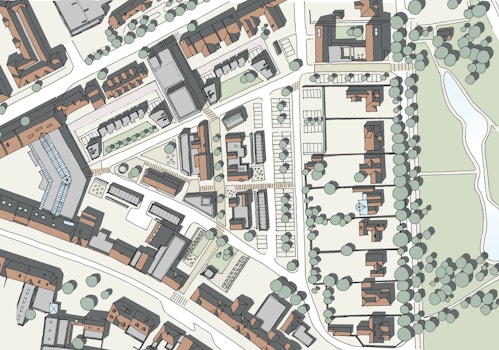/ Planning Utopia: Ebenezer Howard to Post-Covid via Harlow
The utopic vision of the Garden City is as much a spatial idea as a social one. Could it hold valuable lessons for how we plan communities in light of the Covid-19 pandemic?
by Louise MansfieldAs part of our studio virtual Friday Talks, Louise Mansfield revisited the utopian visions of new towns, drawing on a range of examples from the work of Ebenezer Howard to our own more contemporary re-interpretations of Garden City principles.
Ebenezer Howard's vision for 'smokeless and slumless cities' was driven by a strong social mission, rooted in a desire for wellbeing for all. Indeed, Howard had envisioned garden cities where all houses are held in common, so that renters would be entitled to a share in profits, reinforcing the personal interest in prosperity of the whole.
Louise's talk takes us to today's Letchworth and Harlow, where we have been involved in several projects to help guide the evolution of these garden cities with origins going back to the early and mid-20th century respectively. A central goal of these projects has been to bring some urbanity to each city's centre.
Howard's ideas also travelled internationally, with cities adopting aspects of its spatial layout of individual family homes, generous green spaces and widened road networks. Our own work with garden cities brought us recently to Ansan, south of Seoul, where the city is laid out using similar principles. The central challenge in Ansan, as with many garden cities, has been centred around making more durable and sustainable connections between a retail core and its predominately residential hinterland.
Louise ends in central London, currently facing its own challenges with talk of yet another wave of residents decamping from city centres for the suburbs. Will the wave materialise? And if it does, will we be able to design, or recalibrate, tomorrow's suburbs in ways that benefit both environment and society?

